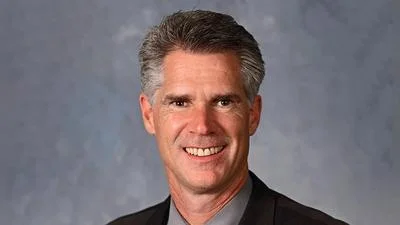What will result from the war crimes arrest warrants for two top Russian officials? | https://news.illinois.edu/
What will result from the war crimes arrest warrants for two top Russian officials? | https://news.illinois.edu/
https://news.illinois.edu/view/6367/869279961What will result from the war crimes arrest warrants for two top Russian officials?
University of Illinois Urbana-Champaign law professor and Heidi Hurd Faculty Scholar Patrick Keenan is an expert in human rights law and international criminal law. He spoke with News Bureau business and law editor Phil Ciciora about the arrest warrants issued to two Russian officials for the forced deportation of Ukrainian children to Russia.
The International Criminal Court recently issued arrest warrants for Russian President Vladimir Putin and Maria Lvova-Belova, a Russian politician who works for Putin as the commissioner of children’s rights. Putin and Lvova-Belova are accused of the unlawful deportation of thousands of children from Ukraine to Russia during the 2022 Russian invasion of Ukraine. What do the arrest warrants mean?
These are the first arrest warrants related to Russia’s invasion of Ukraine that have been made public. When the International Criminal Court issues an arrest warrant, it means that the prosecutor has proved to the court that there are reasonable grounds to believe that international crimes have been committed and that the people named in the warrant are responsible for them.
Basically, it means that Putin and Lvova-Belova are now accused war criminals and that they are subject to arrest if they travel to a country that is a member of the ICC. Many Western European and Eastern European countries are member nations, but the U.S., Russia and China, notably, are not among them.
The arrest warrants are very important symbolically and are likely to have some practical effects as well. It’s noteworthy that the first charges are against Putin and one of his close aides. This shows that the ICC prosecutor will go after the very top of the Russian power structure. And the victims of these crimes are the most vulnerable of victims: children who have had to live through the horrible war and then be forcibly transferred to another country.
Any country cooperating with Russia is now cooperating with an accused war criminal. This might affect countries that are on the fence about whether to oppose the war in Ukraine. Most countries don’t want to work with accused war criminals. It might also help advocates make the case for aid to Ukraine and encourage states to transfer more and different weapons to Ukraine.
What are the accusations against Putin and Lvova-Belova?
The arrest warrants charge that Putin and Lvova-Belova are criminally responsible for organizing, participating in or working with others to illegally detain and transfer children from occupied areas of Ukraine to Russia. It is illegal under the laws of war for an occupying force – in this case, Russia – to deport the local population to another country. This is a form of ethnic cleansing that international law doesn’t permit.
The two crimes were charged as “war crimes,” which is a legal category that covers certain kinds of crimes that take place during an armed conflict. The same conduct could have been charged as a form of genocide.
In my opinion, it’s a good strategy to charge this as a war crime instead of genocide. The forcible transfer of children can certainly constitute either crime, but genocide can be more difficult to prove. Based on the reports I have seen, genocide seems like a highly plausible charge, but the ICC prosecutor may wish to put together more evidence before moving forward with that.
Will Putin actually be arrested and put on trial?
It’s very unlikely that Putin or Lvova-Belova will be arrested or put on trial. The ICC does not have a police force. It relies on law enforcement authorities in member countries to enforce arrest warrants. Member countries promise to cooperate with the ICC when they join it. Russia is not a member and certainly will not arrest Putin. So he’ll only be at risk if he travels outside Russia to a member state of the ICC and that country is willing to arrest him. That is obviously very unlikely.
Putin also is unlikely to travel to a country where he would risk arrest. And unfortunately, the track record of countries cooperating with the ICC in arresting a sitting head of state is not good. For example, many member countries refused to arrest the president of Sudan when the ICC wanted him arrested for genocide. The arrest warrant certainly limited his ability to travel, but he still went outside Sudan several times and was not arrested when he should have been.
Under ICC rules, it can issue an arrest warrant and conduct a “confirmation of charges” hearing, similar to a U.S. preliminary hearing, even if the accused person is not present. But the ICC will not conduct a trial unless Putin is present. So unless the ICC is able to arrest Putin, he will not face trial.
What does this mean for the ongoing war in Ukraine?
Putin clearly doesn’t care about international opinion and has no need to fear the ICC as long as he stays in Russia. The arrest warrants might increase support for Ukraine from other countries. There’s also a chance that the warrants will embolden domestic opponents of Putin and erode some of his support among elites in Russia. Putin may not care about public opinion, but Russians who do business around the world might care about being too closely aligned with Putin after this.
Original source can be found here





 Alerts Sign-up
Alerts Sign-up